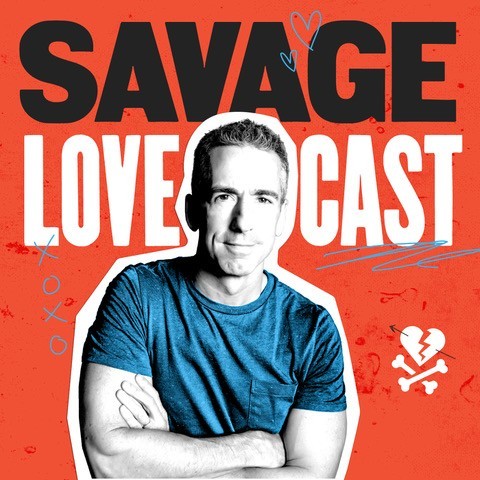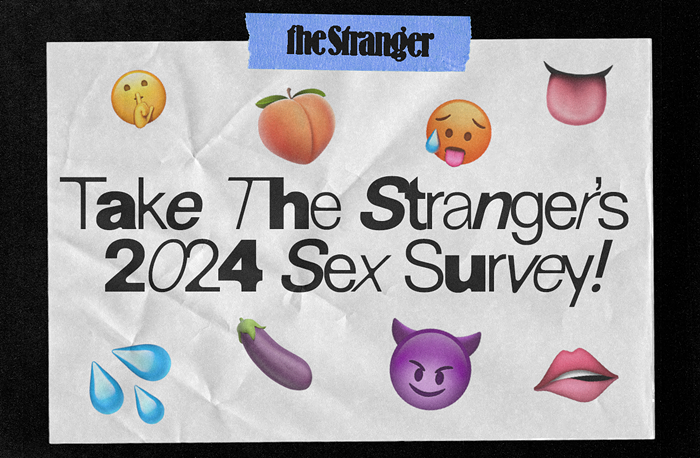What would it feel like to be a baby for a day? Your meals and clothes would be prepared for you, and your busy work schedule would be replaced with hours of mindless fun. All the responsibilities of adulthood would fade into the distance, giving way to a simpler life, if only for a short time.
It’s a fantasy that Seattle resident Smook has tried to suppress for most of his life. Growing up poor in Missouri, he had little access to children’s toys or television, and no friends to play with while he spent most of his time outdoors.
In 2013, when he found a group of people who enjoy roleplaying as babies or wearing adult diapers, called Adult Baby/Diaper Lovers (AB/DL), he thought he had found an opportunity to reclaim his childhood. Yet he felt ashamed of his newfound interest in diapers, and he was still concerned about finances. He pushed the idea to the back of his mind.
One year later, Leo, a condominium superintendent on the other side of the 49th parallel, lost his mother. At the suggestion of a close friend, the Ottawa, Ontario resident tried wearing diapers as a coping mechanism for his grief, only to discover the great comfort they brought.
Leo spent the next eight years embracing this side of himself and exploring Ottawa’s AB/DL community. Smook, meanwhile, spent those years coming to terms with his interests, finally taking the leap into Seattle’s AB/DL community in November 2022. This gave them both the opportunity to express their true selves, form strong friendships with people who understand them, and feel loved.
But no fantasy lasts forever: these identities come with many stigmas. Accusations of immaturity, irresponsibility around children, or even pedophilia run rampant in online spaces and news articles. AB/DL people have been assaulted, fired from their jobs, or legally separated from their children for what community members and experts call harmless interests. Nevertheless, as the AB/DL community continues to grow, more safe spaces are appearing in Washington, Maryland, and Ottawa for these kids-at-heart.
Growing Pains
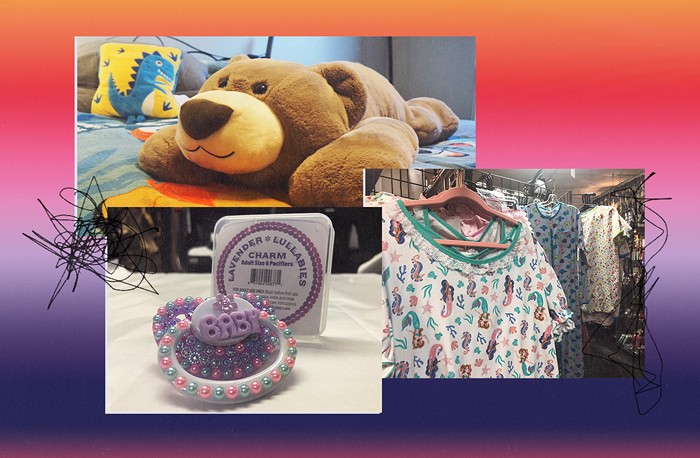
AB/DL is a private affair whose meaning differs from person to person. For some it’s a form of escapism or entertainment, while for others it’s a method of therapy or stress-relief, or an innate part of their personality.
AB/DL people may either call themselves Adult Babies, meaning they like roleplaying as a baby, which is called “age play;” or Diaper Lovers, meaning they enjoy the feeling of wearing or using diapers. Since the ideas are closely related, people sometimes identify as both. These may be casual hobbies for some, like Leo, and sexual kinks for others.
A lack of demographic research makes it difficult to say how many people identify as AB/DL, or how long they have been around for, but online communities have been growing over the last few years. Forums like r/ABDL and DailyDiapers had over 50,000 global users as of March 2023. One of the community’s largest in-person events, the Chicago Age Play convention (CAPCon), had over 1,000 attendees in 2022, up from around 100 in 2013, according to r/ABDL users.
The North American AB/DL community has been growing, with Leo as a vocal supporter for new members in Ottawa. People approach him online with many questions but also many fears and anxieties. AB/DL people are often stigmatized because of the misperception that they are sexually charged and out to harm children, Leo said.
“I’ve heard of some [AB/DL people] being brutally attacked because people think that we have sex with kids, which we do not,” he said. “We may engage in sexual activities with each other, but we’re adults. Not children.”
Leo and Smook are not their real names; they requested to be identified by their online aliases for fear of social repercussions. In addition to hearing stories of friends facing harassment for wearing shortalls and childlike shirts, Leo said a former partner moved out of Ottawa in 2007 when a coworker exposed her AB/DL interests to an employer, who then routinely accused her of pedophilia. In 2022, a woman in Philadelphia talked about her non-sexual AB/DL interests to the New York Post, only to be harassed online by fans of political commentator Matt Walsh, who denounced her as “deranged” and mentally ill to his millions of YouTube followers.
No, AB/DL People Are Not Pedophiles
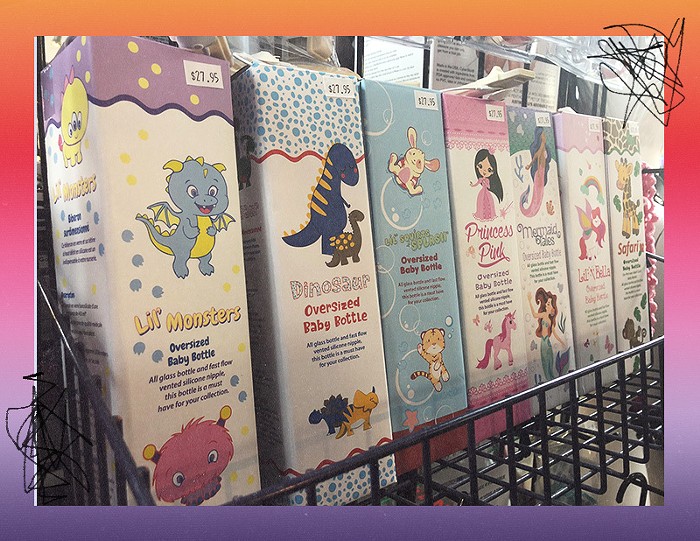
Experts push back on the idea that AB/DL people are sexually attracted to minors. Kevin Hsu is an assistant professor of psychology at Pennsylvania State University with expertise in sexual orientation. In his survey of around 200 AB/DL men for a 2023 Archives of Sexual Behaviour study, Hsu found that less than five percent of respondents–nine people–expressed any sexual attraction to babies. This is consistent with leading studies on pedophilia, which suggest three to five percent of the general public has some attraction to minors, according to a 2015 review published in the journal Frontiers in Human Neuroscience.
Hsu’s study also found that most respondents’ fantasies involved additional people–mostly adult women, but sometimes adult men. According to Hsu, this shows “there’s [only a] superficial similarity” between AB/DL and pedophilia.
“With AB/DL it’s pretending to be a young person, in this case a baby. With pedophilia, it’s sexual attraction to young children,” he said.
Kink-aware sex therapists deny the connection as well. Sue McGarvie has worked with couples and victims of sexual assault in the Ottawa region for over 25 years. Though McGarvie rarely sees AB/DL clients, she thinks the stigma they face makes them display behaviors similar to victims. She based her observation on a series of questions she uses to weed out sex offenders and refer them to other professionals, since working with victims and offenders would create a conflict of interest.
“The offenders, you can tell very quickly,” she said. “They’ll be in your office for 15 minutes and they’ll be blaming everybody else. The victims tend to blame themselves.”
There are many non-sexual reasons someone could be interested in AB/DL, McGarvie explained. A diaper’s fabric or tightness against the legs could feel like a soft hug. Age play could help people return to a peaceful state of mind from “before [they] had to be the big boy.” This observation is consistent with the findings of Hsu’s study, which showed that 95 percent of respondents engage in AB/DL activities out of a “desire for relaxation, comfort, or stress relief.”
Smook, who identifies as asexual, views diapers purely as a source of comfort. He said AB/DL allows him to recapture elements of his childhood that he feels he missed. Knowing that his friends wear diapers also makes him more comfortable expressing emotional vulnerability–sharing such an intimate interest breaks down emotional barriers, he said.
“The best part of the community is that I don’t have to explain myself,” Smook said. “They just get it.”
Leo’s interest in AB/DL is also non-sexual. He was first introduced to age play, which allowed him to explore a more lighthearted and playful side of himself. He soon found that the dependability and comfort of diapers helped him relieve stress. AB/DL also helped him overcome childhood trauma, which he has found to be a common experience for members of the community. He now wears diapers all the time alongside his AB/DL boyfriend. But regardless of its importance to his mental health, Leo said he does not let his participation in AB/DL distract him from his relationships or his job as a property manager.
Rhoda Lipscomb, a Colorado therapist whose specialty in AB/DL has earned her the title of “the Diaper Doctor,” said there’s a common misconception that AB/DL people want to abandon their adult lives. She clarified this is not the case; some practitioners like Leo may have “younger sides to their personalities,” but they treat age play and diapers like hobbies with a nostalgic appeal similar to that of Lego or Disney World. Otherwise, they enjoy their adult lives just as much as anyone else.
“Most of these people are not doing this 24/7,” Lipscomb said. “[They] have careers and relationships, and interact in society just as successfully as other people.”
She also agreed that age play can be therapeutic, but, unlike Leo, she said most members of the community have healthy family relationships. Lipscomb said she wanted to stress that point because many therapists falsely believe AB/DL is caused exclusively by childhood trauma, which leads to the misconception that it can be “fixed.” According to her, this is part of a general lack of education, even among therapists, about stigmatized kinks.
“There’s zero training on [AB/DL] in graduate school doctoral programs. So when the first person I met came to me [in 2010] saying they felt this way, I had to try to figure it out,” she said. “It damages the profession, because then clinicians are not considered trustworthy.”
Ultimately, Hsu, McGarvie, and Lipscomb agreed with Leo that AB/DL people do not pose inherent risks to anyone. This expert consensus, however, has not stopped misconceptions from harming the community.
Bias In and Out of the Courtroom
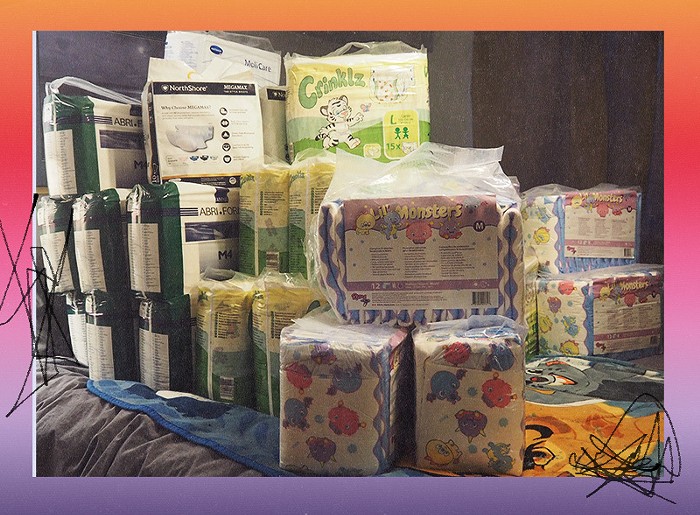
Ummni Khan, a Carleton University associate professor of law with expertise in kink-related law, said judges are likely to rule against an AB/DL parent in custody battles. In 2021, an Australian court banned an AB/DL father from seeing his children after he broke an agreement with his ex-wife to not wear diapers around them. The UK-based Daily Star reported that she found him wearing a diaper under his everyday clothes while picking up their children in 2019.
Whether the father had sexual associations with diaper-wearing is not publicly known. But, according to Khan, judges tend to share the misconception that people can’t keep their kinks separate from their children. The associations between age play and attraction to minors further bias judges against AB/DL people, Khan said. She explained that judges may be concerned about age play tempting people to re-enact their sexual fantasies with real children.
“That’s one of the big fears that anti-kink people have: that even if you’re not a violent person, by playing with the appearance of power differentials, coercion [or] violence, that’s a gateway to real violence,” she said.
No studies exist yet to prove or disprove this claim in relation to practicing kinks, since, according to Khan, the topic is too fresh for psychologists. It was only in 2013 that the American Psychological Association reworked the Diagnostic and Statistical Manual of Mental Disorders (DSM), a psychology manual used globally, to distinguish between kinks and kink-related disorders. But Khan said she is inclined to dismiss these fears based on adjacent research that finds no link between real violent behavior and consuming hardcore porn, such as a 2020 study in Archives of Sexual Behaviour co-lead by Canadian psychologist Taylor Kohut.
These misconceptions have driven AB/DL communities into obscurity, and banned them even from mainstream porn outlets. Sophie Ladder, a Las Vegas-based adult content creator, hosts a publicly available document outlining the types of content restrictions on the most popular porn platforms, including Chaturbate and OnlyFans. As of November 2022, age play was either banned or strictly limited on 20 of the 35 listed websites. Data for age play was unavailable for Pornhub and four other platforms, despite that data being available for most other kinks. Diaper content was also banned or strictly limited on 18 of the 35 listed websites.
Sam Hughes, a PhD candidate in psychology at the University of California, Santa Cruz, who is writing his dissertation on kink and stigma, verified the accuracy of Ladder’s document. He said most publicly traded companies don’t want to advertise on websites that host this content–and most banks don’t want to support those websites’ transactions–because they’re worried about how shareholders would react. He doesn’t see this changing anytime soon, so AB/DL creators are forced to host content on independent websites.
People with kinks find solace in independent communities, but AB/DL people are often shut out of these groups as well, according to Hughes. Kink communities that are usually accepting and open-minded hesitate to associate with AB/DL people, he said. This is because they want to appear outwardly “normal,” and the association between AB/DL and pedophilia feeds into the public’s negative perceptions of people with kinks. McGarvie said this manifests at local Ottawa kink events, where age play is not accepted because it’s seen as wrong and “underground.”
In the experience of Ryan Polokoff and Sabine Kissee, even when AB/DL people create spaces for themselves, they’re taken down forcibly.
Killing My Inner Baby
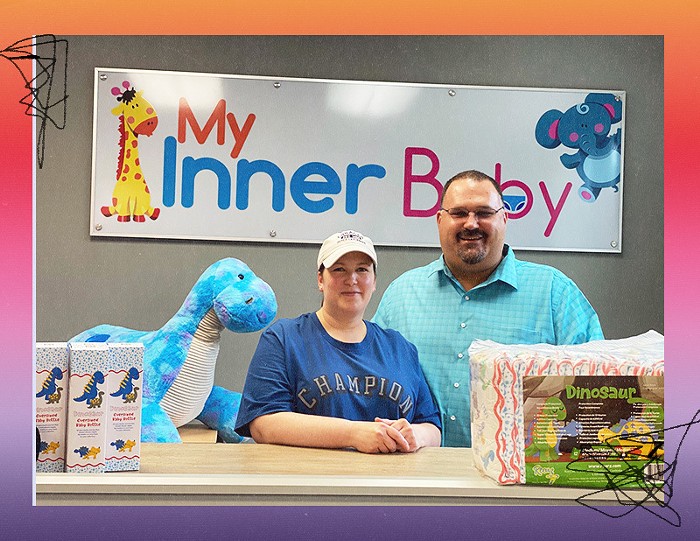
Polokoff and Kissee are the co-owners of My Inner Baby, an online AB/DL company that sells adult diapers and onesies. In August 2022, the pair were forced to close the company’s brick-and-mortar store in Noblesville, Indiana after the city canceled an unrelated multimillion-dollar construction project also led by Polokoff.
According to Polokoff, Noblesville officials withdrew from the project because they regarded My Inner Baby as a “sex shop” that “doesn’t meet the morals of the city.” The city has denied that charge, but the Indianapolis Star confirmed Polokoff’s claim in a review of internal city emails. My Inner Baby was then served a cease-and-desist order backed by daily thousand-dollar fines until they closed the store.
“They’re saying that we are marketing our products particularly to stimulate human genital organs. That’s not true,” Polokoff said. “We don’t market our products… as being stimulating or fulfilling. We market [them] based on color, styles, absorbency, fit, and function.”
Polokoff and Kissee said My Inner Baby is not a sex shop but a safe space where people don’t have to fear judgment. The co-owners never ask why people buy from the store out of respect for their privacy, but they believe around half their customers buy diapers for medical incontinence. According to Kissee, many customers have voluntarily told her about the life-changing impact of My Inner Baby’s diapers.
“Our products are a lot better than anything you can buy at Walgreens, Walmart, or CVS,” Kissee said. “People that actually depend on them, like veterans that got injured in war–we have a lot of those customers–[are] not happy with the products they get supplied by Veterans Affairs. They choose to pay for a better product.”
Both the AB/DL community and people with medical incontinence have fewer options with the physical location now closed, My Inner Baby’s owners said. They filed a federal lawsuit against Noblesville city officials in January 2023, citing a 14th Amendment violation against their store, according to Indianapolis-based WRTV. Polokoff said the physical store helps customers feel more comfortable with themselves, so he hopes to reopen once the legal battle with the city is finished.
Safer Spaces on the Coasts
Other spaces have had a more positive reception. ABUniverse is a company that sells diapers, onesies, and pacifiers out of its retail stores in Baltimore, Maryland and Everett, Washington. Global director of communications Miles Roberts said they have not received major pushback from the community–people tend to have visceral reactions to the topic, but they are more curious than hostile or aggressive, and the stores give them an opportunity to learn through direct exposure.
Along with their online distribution and pair of stores, ABUniverse offers a personalized experience called Build-a-Pack: customers are equipped with colorful hard hats and safety vests so they can explore the stores’ attached warehouses and purchase any assortment of available products. Roberts said the playfulness of this experience allows AB/DL people to feel comfortable expressing themselves at their stores.
“When we have a group of people who age-play in smaller headspaces, knowing that [they] can engage freely and safely in play among [their] friends is a great thing,” Roberts said. “Everyone wants to be themselves and no one wants to be judged for it. We provide a really small segment of that.”
All members of ABUniverse’s staff identify as AB/DL, including Roberts. He said they operate like any other work environment–no play structures or nap times around their main office in Washington–but they all share a mutual passion for their job and the products they sell. This lets customers interact with people who understand them, which Roberts said makes buying AB/DL products less intimidating; it does away with the “clandestine experience of quietly ordering something online after hours with the lights out,” brought on by a fear of being socially stigmatized for having AB/DL interests. Roberts added that ABUniverse still offers discrete online shipping for customers who can’t frequent the warehouses.
Smook has only been to ABUniverse once, but he said it was a profound experience. It offers a space where the community feels seen, and it lends legitimacy to their identities on an international scale, he said, adding that ABUniverse has “started a wave of acceptance in other parts of the world.”
The owner of The Alternative, a kink-based sex shop in Ottawa, has also noticed the de-stigmatizing impact of providing safe spaces for AB/DL people. Cynthia Brown started to stock adult onesies in December 2020 following weekly requests from customers. After a year, Brown noticed people were not only buying these products daily but also bringing in their friends to introduce them to AB/DL. She said her store has helped people normalize AB/DL, estimating that 12 in every 100 customers now come to The Alternative to buy those products.
“The more somebody passes by these items, the more comfortable they’re going to be seeing them,” said Brown, who hopes to expand her store’s AB/DL section one day.
As AB/DL has gained more international respect, Leo has experienced growth on the local end: people have been asking him more questions than ever before. He said there’s always space for more in Ottawa’s AB/DL community, so he welcomes every opportunity to help someone accept themselves.
“I couldn’t live without [AB/DL] to be honest, but what I like the most about it is being able to help others,” Leo said. “You see them be happier.”
Smook has also noticed an increase in local membership. The Seattle AB/DL group chat he joined in November 2022 has received new members almost daily, he said. It currently has more than 300 tight-knit users, which Smook said is big for such a niche interest.
Now that he’s finally involved in the community, he said he could never imagine suppressing his AB/DL identity again: “I feel like I finally have a solid social network for the first time in my adult life.”

